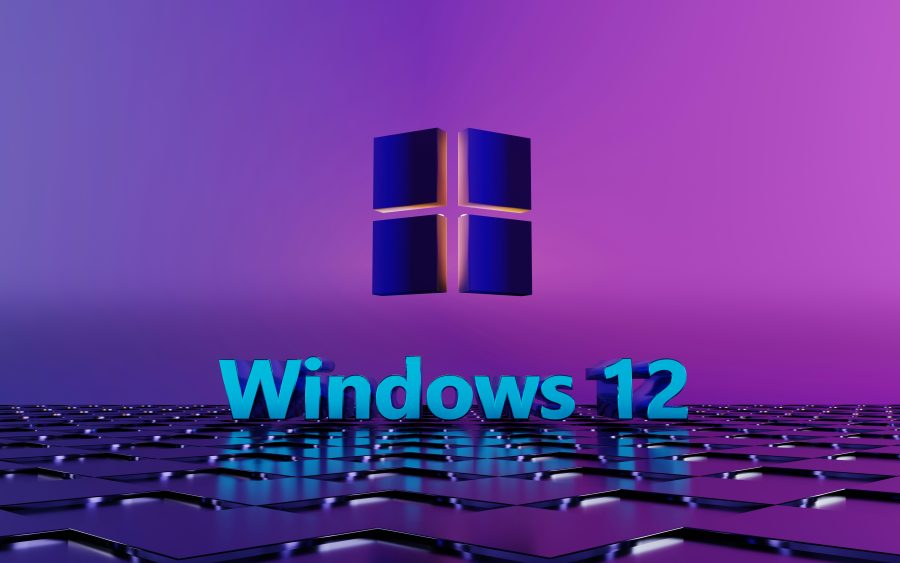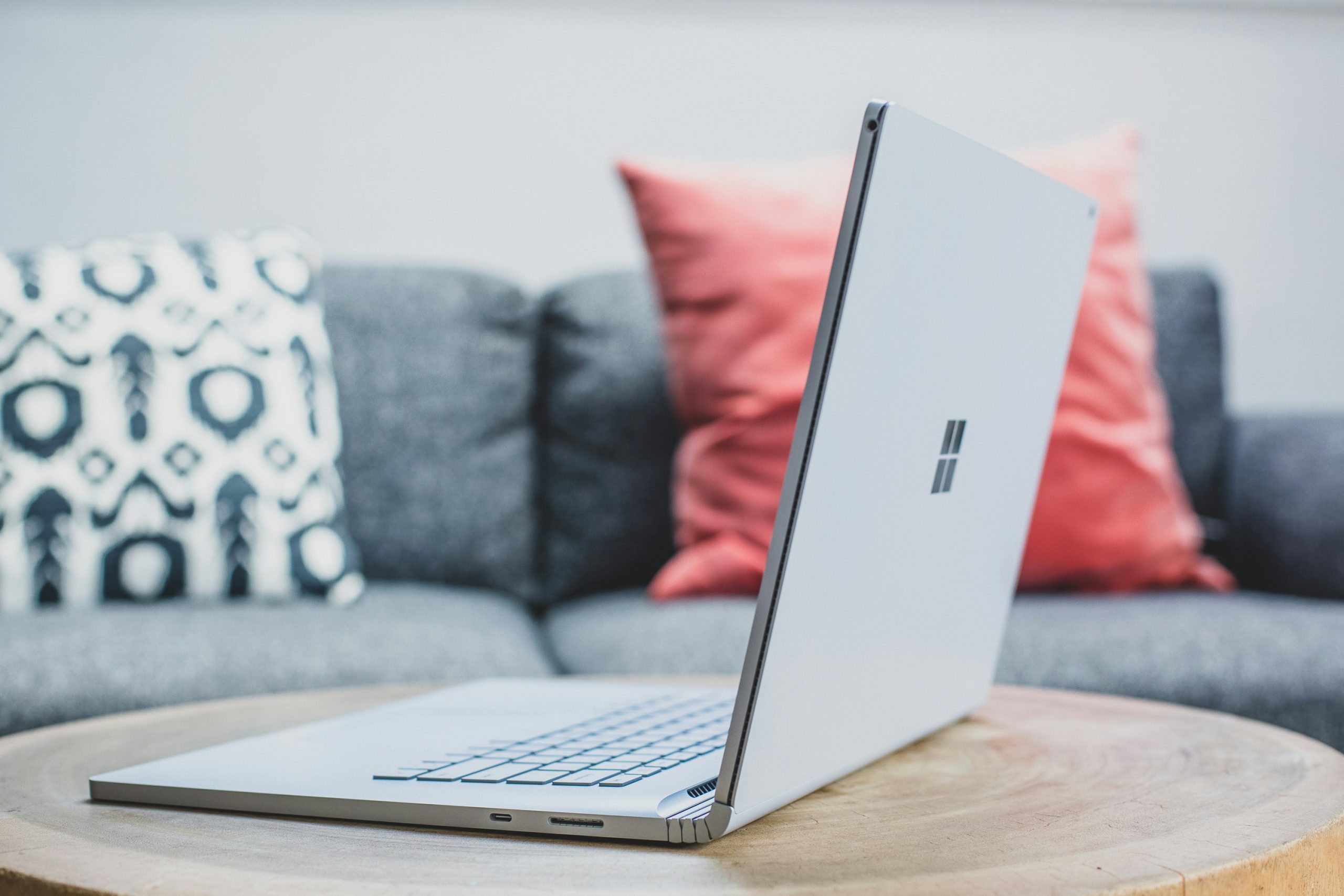

 According to certain rumors, Windows 12's AI capabilities may set new standards for machine learning's ability to predict a user's intent. However, it will be imperative that Windows strikes the correct balance between being useful and intrusive. Although Windows is keeping quiet about Windows 12, they may have already given us a preview of the desktop layout. ExtremeTech published an image of a Windows desktop from Microsoft Ignite 2022, and it looked much different from what users were accustomed to with Microsoft 11. It has a floating search panel, a floating taskbar, and a weather widget at the top left of the screen.
According to certain rumors, Windows 12's AI capabilities may set new standards for machine learning's ability to predict a user's intent. However, it will be imperative that Windows strikes the correct balance between being useful and intrusive. Although Windows is keeping quiet about Windows 12, they may have already given us a preview of the desktop layout. ExtremeTech published an image of a Windows desktop from Microsoft Ignite 2022, and it looked much different from what users were accustomed to with Microsoft 11. It has a floating search panel, a floating taskbar, and a weather widget at the top left of the screen.
Zac Bowden of Windows Central almost verified that this could be the first public sighting of Windows 12, given how close the design was to other Windows 12 iterations he has seen and Microsoft's ongoing experiments with them.
It is no secret that Artificial Intelligence (AI) is at the center of everything Microsoft is doing right now, so Windows enthusiasts shouldn't be surprised to learn that Microsoft Copilot will probably power several new AI capabilities. The sophisticated AI capabilities and features included in Windows 11's 23H2 upgrade are expected to be carried over into this year's 24H2 update.
However, many believe that Windows 12 will only bring about additional stability, power, and security for much of what we now experience in Windows OS. Improved AI algorithms are reportedly being worked on to provide Windows 12 customers a more tailored experience. This could include enhanced AI-powered search features and a more sophisticated Recommended section in File Explorer.
Microsoft has always been open about its plans to integrate AI features into the Windows operating system. Thus, we don't anticipate that Windows 12 will modify this. Though there isn't any official confirmation, it's intriguing to think about the potential for additional AI features beyond what Windows 11 offers. Windows 12 has the potential to significantly advance AI capabilities, building on the groundwork set by the 23H2 update for Windows 11, which brought Microsoft Copilot to Windows. Future updates may improve Copilot's capacity to operate and communicate with the PC even more. It has already proven that it can offer a more efficient and customized experience.
Expect Windows 12 to include improved HDR support, more compression tools in Windows Explorer, and much-anticipated Wi-Fi 7 compatibility. All of these features are included in Windows 11 24H2, which is due out soon. Expanding AI-powered search capabilities, akin to those found in Windows 11's Taskbar, where users can quickly use the search icon to look up material throughout Microsoft 365, is one possible area for development.
Furthermore, with improved AI algorithms, File Explorer's Recommended section—which makes recommendations for files and folders based on user behavior—could be improved and expanded even further.
While Microsoft has not disclosed the system requirements for Windows 12, we can infer some reasonable assumptions from existing practices and developments in technology. Firstly, users would probably need a 64-bit processor with two or more cores, a minimum of 4–8 GB of RAM, and a minimum of 16 GB of RAM to operate Windows 12 because of the AI-heavy features that are anticipated to be included with the new Windows.
Will There Be Different Versions of Windows 12?
 Like it's before, Windows 12 is probably going to be available in Home and Pro versions, maybe with different names. This will be done to accommodate the desires of high-end and end users. Therefore, it shouldn't be shocking if Microsoft chooses to release Windows 12 by this classification. As with Windows 11, we may anticipate differing degrees of support, security, and functionality in these versions as well. Microsoft will reveal the precise editions and their features closer to the release date, much like with prior Windows releases.
Like it's before, Windows 12 is probably going to be available in Home and Pro versions, maybe with different names. This will be done to accommodate the desires of high-end and end users. Therefore, it shouldn't be shocking if Microsoft chooses to release Windows 12 by this classification. As with Windows 11, we may anticipate differing degrees of support, security, and functionality in these versions as well. Microsoft will reveal the precise editions and their features closer to the release date, much like with prior Windows releases.
Upgrade & Premium Options:-
It's reasonable to speculate that Microsoft may introduce a Windows 12 subscription model in place of the company's existing license purchase mechanism, given that many software versions now use subscription models. It is safer to believe that Microsoft will provide Windows 12 as a free optional update, similar to what it did with Windows 11, as there is no evidence suggesting otherwise. This implies that consumers can update to the newest operating system for free if they have a valid license for Windows 11 or possibly even Windows 10. But Microsoft will probably charge the same as it did for Windows 11 for individuals who want to buy a solo copy of Windows 12.
"Representative of the design goals that Microsoft is hoping to achieve with the next version of Windows," he confirmed, was how the interface should be designed. That indicates that, even if this may not be the final OS user interface, we should anticipate some major adjustments to Windows 12's desktop layout.
Its arrival was first anticipated for the second part of 2024. Insiders predict that we won't receive access to Windows 12 until the second half of 2025, even though the upcoming upgrade is confirmed to be Windows 23H2. Windows 10 and Windows 11, which debuted in October 2021, were separated by six years. A major Windows release would occur every three years before that. Since Windows has declared that it will release an annual feature update for its operating system, September or October 2025 is now the anticipated release date for Windows 12.
Updating is free of charge for users with Windows-powered devices, just like with other Windows OS updates. You should be able to use Windows 12 for free as long as you have a valid license for Windows 10 or 11.
Still, premium membership options might be available, particularly regarding its more potent AI features, though that is still only theory.
The next big development in Microsoft's flagship operating system, Windows 12, is anticipated. As Windows 12 builds upon the groundwork set by Windows 11, it promises to provide a more integrated, efficient, and smooth user experience.
Windows 12 is expected to be released from July to October 2025.
Original estimates considered 2024 to be the year until Microsoft announced Windows 11 24H2. Based on the company’s previous release playbook, the release date in Q3 aligns with Microsoft’s traditional launch windows.